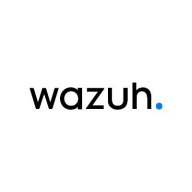

Datadog and Wazuh compete in the monitoring and security sectors. Datadog holds a competitive edge due to its extensive features and integrations, particularly with cloud services, despite its higher cost.
Features: Datadog is known for its comprehensive hosting capabilities, allowing users to reduce infrastructure dependency. Notable features include sharable dashboards, anomaly detection, and wide-ranging integrations with applications like AWS and Docker. Wazuh's primary appeal lies in its open-source nature, offering file integrity monitoring and vulnerability detection, making it a cost-effective alternative.
Room for Improvement: Datadog faces criticism for its complicated cost structure, inconsistent APIs, and limited customizability in certain areas. There is a demand for better integrations, notably in security features. Wazuh is noted for needing enhanced detection and reporting capabilities, along with improved real-time monitoring for Unix systems. It also requires stronger cloud integration and scalability solutions for larger organizations.
Ease of Deployment and Customer Service: Datadog is praised for being versatile across various cloud platforms and comes with proactive customer support, though some users have reported delays. Wazuh, usually deployed on-premises, has mixed reviews regarding customer support, with calls for improved responsiveness and solution efficiency. Its value is in its open-source flexibility and affordability, sometimes over immediate customer service needs.
Pricing and ROI: Datadog, while offering a comprehensive feature set, is often criticized as expensive with a complex pricing model, yet delivers good ROI in time savings and system uptime maintenance. In contrast, Wazuh's open-source nature eliminates licensing fees, attracting SMEs. However, customizing the solution to specific needs can demand significant time and effort, impacting ROI.
There is no dedicated technical support for Wazuh as it is open source.
The documentation is good and provides clear instructions, though it's targeted at those with technical backgrounds.
We use the open-source version of Wazuh, which does not provide paid support.
It can accommodate thousands of endpoints on one instance, and multiple instances can run for different clients.
Scalability depends on the configuration and the infrastructure resources like compute and memory we allocate.
The stability of Wazuh is largely dependent on maintenance.
The stability of Wazuh is strong, with no issues stemming from the solution itself.
The documentation is adequate, but team members coming into a project could benefit from more guided, interactive tutorials, ideally leveraging real-world data.
There should be a clearer view of the expenses.
The integration modules are insufficiently developed, necessitating the creation of custom integration solutions using tools like Logstash and PubSub.
There is room for improvement by integrating more AI into Wazuh.
An issue I noticed is with tag values in certain rules not functioning properly.
The setup cost for Datadog is more than $100.
Totaling around two lakh Indian rupees per month.
Since Wazuh is open source, the pricing for support could be applicable to medium-sized companies without much issue.
Our architecture is written in several languages, and one area where Datadog particularly shines is in providing first-class support for a multitude of programming languages.
The technology itself is generally very useful.
The fact that it is open source means it is always being expanded, which is beneficial for customizing solutions for individual client requests.
Wazuh's most valuable features include file monitoring and compliance reporting, which do not require excessive costs.
We found the MITRE framework mapping and the agent enrollment service to be the most valuable features of Wazuh.


Datadog is a comprehensive cloud monitoring platform designed to track performance, availability, and log aggregation for cloud resources like AWS, ECS, and Kubernetes. It offers robust tools for creating dashboards, observing user behavior, alerting, telemetry, security monitoring, and synthetic testing.
Datadog supports full observability across cloud providers and environments, enabling troubleshooting, error detection, and performance analysis to maintain system reliability. It offers detailed visualization of servers, integrates seamlessly with cloud providers like AWS, and provides powerful out-of-the-box dashboards and log analytics. Despite its strengths, users often note the need for better integration with other solutions and improved application-level insights. Common challenges include a complex pricing model, setup difficulties, and navigation issues. Users frequently mention the need for clearer documentation, faster loading times, enhanced error traceability, and better log management.
What are the key features of Datadog?
What benefits and ROI should users look for in reviews?
Datadog is implemented across different industries, from tech companies monitoring cloud applications to finance sectors ensuring transactional systems' performance. E-commerce platforms use Datadog to track and visualize user behavior and system health, while healthcare organizations utilize it for maintaining secure, compliant environments. Every implementation assists teams in customizing monitoring solutions specific to their industry's requirements.
Wazuh is an enterprise-ready platform used for security monitoring. It is a free and open-source platform that is used for threat detection, incident response and compliance, and integrity monitoring. Wazuh is capable of protecting workloads across virtualized, on-premises, containerized, and cloud-based environments.
It consists of an endpoint security agent and a management server. Additionally, Wazuh is fully integrated with the Elastic Stack, allowing users the ability to navigate through security alerts via a data visualization tool.
Wazuh Capabilities
Some of Wazuh’s most notable capabilities include:
Wazuh Benefits
Some of the most valued benefits of Wazuh include:
Wazuh Offers
Reviews From Real Users
"It's very easy to integrate Wazuh with other environments, cloud applications, and on-prem applications. So, the advantage is that it's easy to implement and integrate with other solutions." - Robert C., IT Security Consultant at Microlan Kenya Limited
“The MITRE ATT&CK correlation is most valuable.” - Chief Information Security Officer at a financial services firm
We monitor all Log Management reviews to prevent fraudulent reviews and keep review quality high. We do not post reviews by company employees or direct competitors. We validate each review for authenticity via cross-reference with LinkedIn, and personal follow-up with the reviewer when necessary.